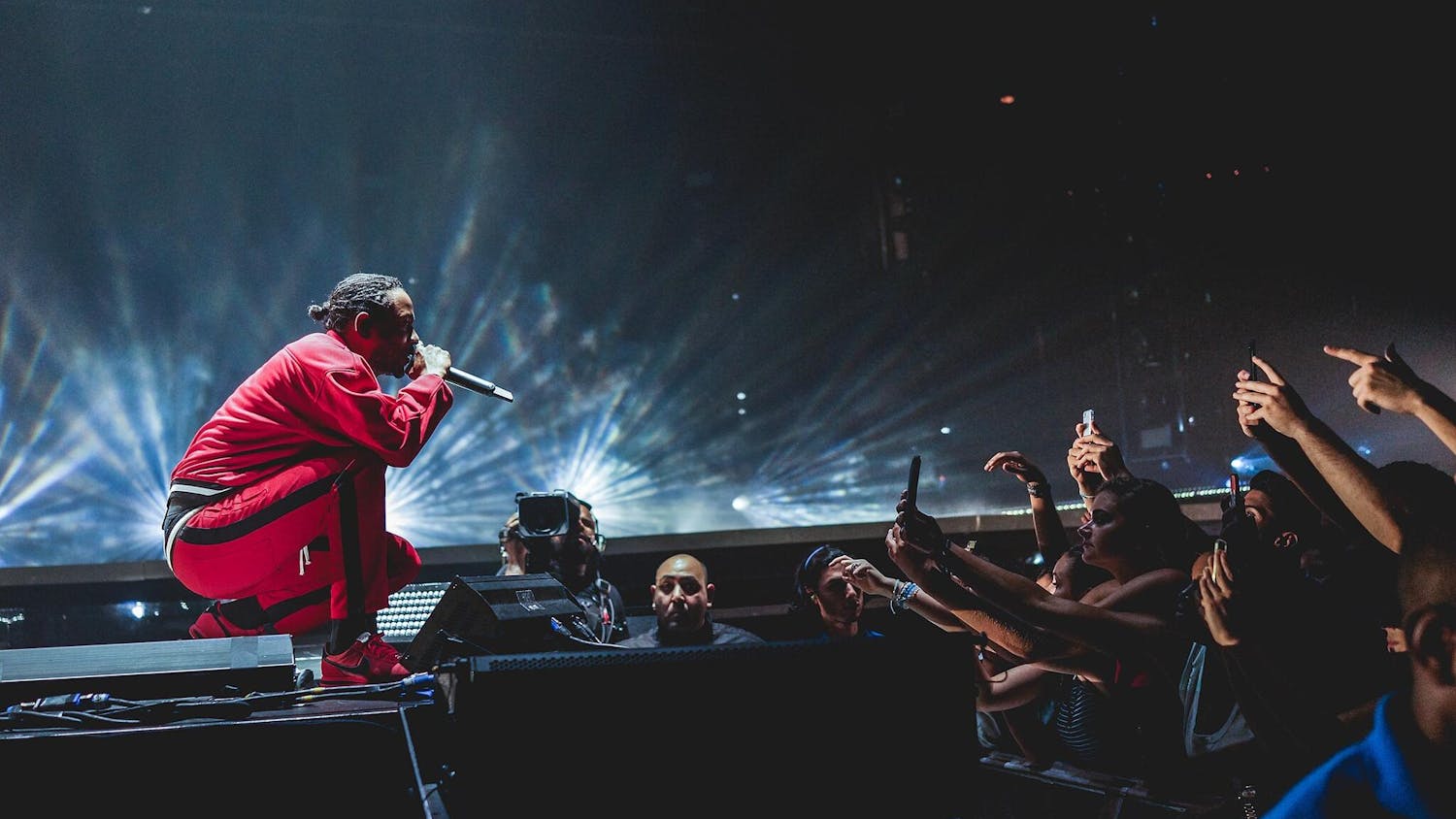Netflix’s bilingual drug drama “Narcos” (2015-present) returned Sept. 2 for its second season.Season one of Narcos follows the rise of infamous Colombian drug lord Pablo Escobar (Wagner Moura) as he blazed a bloody trail from small time smuggler to ruler of a cocaine empire that made him one of the world’s richest men.
Drug Enforcement Administration (DEA) agent Steve Murphy (Boyd Holbrook) returns as the series’ whisky-toned narrator, but this season, he is narrating the decline of Escobar’s empire. Galvanized by Escobar’s outrageous violence, a loose confederation of American three letter agencies, anti-communist guerrillas, the Colombian national police and rival drug traffickers is working together (and sometimes not) to put Pablo Escobar at the smoking end of a gun.
The slow and then brutally fast erosion of Escobar’s empire gives the second season a darker, more desperate feel than the first, where Escobar himself seemed unassailable at times. There were just as many bodies on the ground in season one, but with the second season's focus squarely on Escobar, the viewer can see just how cornered he feels, lashing out with heedless brutality at his enemies, both real and imagined.
The decline of Escobar’s fortunes is reflected in the progressively more modest residences that Escobar and his family inhabit over the course of the season. Far from shuttling between lavish homes as they did during season one, the Escobars end up in more humble abodes, culminating in an unheated house where, in a moment of poignant irony, Escobar burns stacks of cash in place of absent firewood to keep his children warm.
Escobar’s dire state is brought home to the viewer not only by his family’s obviously diminished comfort, but also by the man’s very appearance. Moura carried himself with a glowering heft when he played Escobar in the first season, heaving his sweater-clad bulk around with menacing purpose. But as the events of the second season wear him down, Escobar’s gravitas gives way to a kind of lumbering defeat complete with a bushy beard.
The dismantling of Escobar’s empire is depicted in a fairly formulaic fashion: one of Escobar’s many enemies discovers a piece of intelligence, they move to attack Escobar and/or his lieutenants, and then a car chase or gun battle ensues.
The action may be formulaic, but it’s well put-together with enough bullets, blood spatters and running along rooftops to keep the tension high. In one particularly well-executed action sequence, gunmen assault Escobar’s home, and the camera follows both the attackers and the defenders, moving from man to man, lodging behind the shoulder as the chosen gunman moves from cover to cover. Heart-pounding scenes like these allow the viewer to forgive the more cookie-cutter (but still good) action that marks the climax of many episodes.
Agent Javier Pena, played by Chilean actor Pedro Pascal who is known for his role on “Game of Thrones” (2010-present), often drives this action through his fluent Spanish and willingness to leak information to Escobar’s criminal rivals.Pascal’s performance, with his lithe amoralism, elevates every scene in which he appears, but Pascal’s character is sidelined later in the season and reduced to a handful of appearances in the final episodes. The chemistry between Holbrook's and Pascal’s characters was always the lynchpin of the scenes featuring the DEA and the wider U.S. government, but without Pascal, Holbrook’s performance comes off as bleary-eyed and listless. This is perhaps intentional, but watching Holbrook drag his lanky, befuddled frame through a scene without Pascal makes for tedious television.
Beyond the Americans, Leynar Gomez’s performance as Limón, a brothel chauffeur who ends up as Escobar’s most loyal sicario, is an unexpected highlight of the season. The nuance Gomez brings to his character’s gradual transition from petty criminal to cold-blooded murderer spectacularly illustrates the internal conflict and eventual numbness to the violence inherent in becoming Escobar’s most loyal henchman. In one scene, Limón accidentally shoots his childhood friend during an argument while her infant child looks on.He makes amends in the way Escobar has taught him, by casually scattering hundred dollar bills over the still-warm corpse, leaving the body, blood, Benjamins and baby behind as he walks out the door.
Chilling scenes like this, that move from the bang of a gun to the excruciating silence of the aftermath, are not that unusual in a television landscape shaped by the sex and violence of “Game of Thrones” and the brutality of “Breaking Bad” (2008 - 2013), but in the stable of Netflix originals, dominated by slick political drama “House of Cards” (2013-present) and fish-out-of-water prison dramedy “Orange is the New Black” (2013 - present), “Narcos” is a breed apart. Its focus on violence, profanity and dialogue delivered in Spanish makes the show stand out from its binge-watchable kin. The change of pace regarding Escobar’s power keeps the second season fresh while maintaining what made the first season so good. Season two sets a high bar for season three, and it’s rumored to focus on the Cali Cartel and DEA agent Pena. It can seem a little wrong at times to be entertained by the dramatization of events that led to the deaths of thousands and ruined the lives of thousands more, but if your moral compass will allow you to enjoy it, the rise and demise of drug lords as presented by Netflix makes for some fine television.
Netflix's 'Narcos' returns for gripping second season
Summary
Season 2 of Nacros maintains the grittiness and pulse-pounding action that made the first season so good, with just enough new characters and perspectives to keep things fresh
4 Stars





